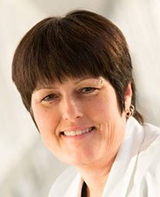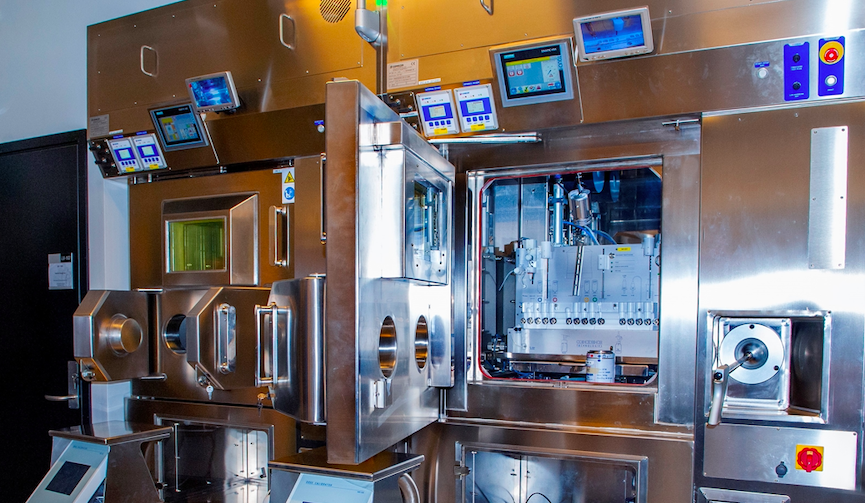When Frans Suurs was about to finish his PhD in the Netherlands, he was considering all kind of options.
“The Scientia Fellows programme was mentioned by a collaborator at that time, and it seemed a very interesting program with a focus on developing the careers of postdocs. This was something that really spoke to me, since I heard from many other postdocs that they often feel a bit lost and become uncertain about their future opportunities.
Read more about the open call in Scientia Fellows here.
Moreover, I was delighted when I found out that it was possible to collaborate with the industry during the postdoc. I had been wondering whether I would prefer a career in academia or the industry, so combining both in this opportunity sounded perfect!” says Suurs.
Collaboration between academia and industry
Professor and group leader Kjersti Flatmark is combining clinical work with building

translational research projects focusing on treatment of colorectal cancer.
“I have worked with Bayer before, and they contacted me with an interest to use my animal models in testing out different drugs. We took the opportunity to collaborate on a Scientia fellowship and found a great candidate in Frans Suurs” says Flatmark.
“I am Frans` main supervisor, but he is working closely with colleagues at Bayer as well. One important element to balance in academic-industry partnership is the need for an academic to publish articles and the demand for the information not to have been publicly referred to when you apply for patents.” says Flatmark.
Frans Suurs did his bachelors in Pharmaceutical Sciences and masters in Oncology at the Vrije Universiteit in Amsterdam.

“During my masters I did an internship at the biotech company Genentech, Inc. in San Francisco, and returning to the Netherlands I pursued a PhD at the University of Groningen at the department of Medical Oncology. During my PhD, I focused on employing visualization techniques such as positron emission tomography (PET) to elucidate where anti-cancer drugs go, especially immunotherapeutic, and how we can monitor their effects in-vivo.”
We asked Frans Suurs some more questions about his experience as a Scientia Fellow and researcher.
Do you have any recommendations to researchers thinking about applying to Scientia Fellows?
Be sure to pack some good winter clothes! Moreover, being in a program that actively acknowledges the position you are in, a postdoc, where you are not yet an established researcher and neither a student anymore, and tailers programs and courses to this specific need, greatly helped me better understand my own situation and choosing my way forward. I think this focus on what a postdoc position entail can be beneficial for all postdocs.
Also, since the Scientia Fellows program is international, they help you with getting started and connecting you to other internationals who share or shared the same experience as you. Thereby the process of starting in a new country is smoothened.
I will recommend Scientia Felllows to anyone that is looking to continue in academics after finishing their PhD in an excellent research environment.
What have you learned so far as a Scientia fellow and what do you think your colleagues have learned from you?
From my experience, being in a new environment your learning curve is also steepened. So, besides the many new techniques, analytical models and enhancing your professional network, I made new friends and am learning how the Norwegian society and culture functions.
Any new person will always bring other perspectives to the table, which is paramount in keeping an open mind. I hope I too was able to do this, but I feel that I cannot answer that for my colleagues.
What is your research focus?
My current focus is on facilitating the translation of a novel kind of anti-cancer treatment, called alpha-targeted therapy. Here, an alpha emitter is conjugated to a tumor-targeting antibody, which will guide the alpha emitter to the tumor and will thereby specifically damage the tumor.
By employing imaging methods such as single-photon emission computed tomography (SPECT), magnetic resonance imaging (MRI) and computed tomography (CT) we visualize where the drug is going and investigate why and how we can optimize this.
What do you expect to achieve the next years?
I hope to continue to learn and develop new techniques and share my research within the scientific community. I hope to see that these findings can be used to facilitate drug development and eventually contribute to design clinical trials.
How will your research benefit your field of expertise, health professionals or patients?
I hope my research will contribute to a better understanding regarding how to target tumors with antibodies and that the tools that I am developing will be used for future research. This will facilitate the translation of therapies from the bench to bedside and thereby hopefully make an impact too on patients. Next to this, the imaging tools that we are working on in my postdoc could also help extracting more information during clinical trials.
Where do you think your field of research will be in ten years?
I think that the role of molecular imaging techniques such as PET and SPECT will continue to grow, due to its great usefulness in drug development by providing fast answers regarding dosing, biodistribution and targeting. Fully utilizing these powerful molecular imaging techniques to rationally develop treatments and intelligently design clinical trials, might pave the way for the use of targeted alpha therapies in the clinic.
Are there other aspects of your experience with Scientia fellows, Norway and research you want to share?
Although I am highly motivated and committed to my postdoc, the working culture in Norway has an excellent work-life balance. While doing my postdoc I have also gotten the opportunity to wander the forests and fjords and explore this beautiful country, improve my skiing and ice-skating skills, and learn a new language.
